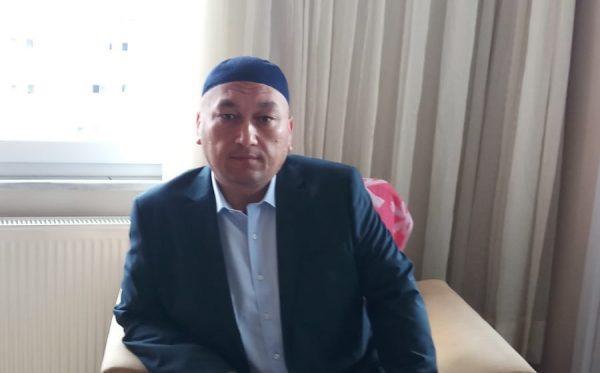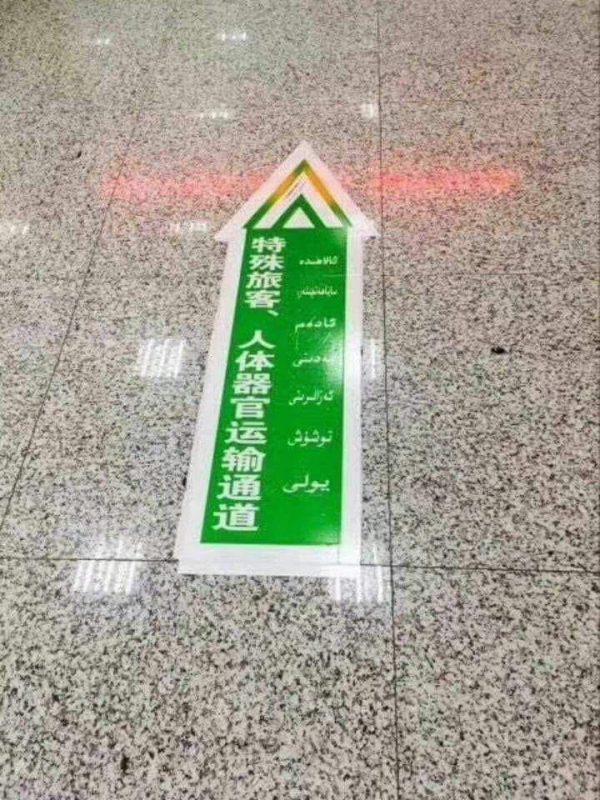Uyghurs detained in secretive “political re-education” camps in China’s northwestern Xinjiang region may have their organs harvested for profit by the Chinese Communist Party (CCP), a former medical surgeon who was forced to carry out the procedure in 1995 told The Epoch Times.
Speaking to The Epoch Times about the CCP’s escalation of repressive policies for Xinjiang’s ethnic minorities, Tohti said it is his belief that “this [organ harvesting] is still going on.”
“The CCP are stealing their organs,” he said, referring to the ethnic minorities in Xinjiang—mostly Turkic-speaking Uyghurs.
When asked why he believes this is the case, Tohti explained: “China can deliver organs on demand. When someone needs an organ, on that day, somebody will die.”
“Upwards of 1 million” predominantly Uyghur prisoners continue to be detained in what were, until Oct. 9, extrajudicial internment camps in Xinjiang, according to figures quoted by the U.S. Congressional-Executive Commission on China and the United Nations.
Tohti’s comments came as a former Uyghur detainee—a Kazakhstan national aged 54 who was released in September 2018 from a camp in Urumqi after being detained for 15 months—told The Epoch Times that the CCP divides inmates in the facilities into two groups: those with and those without family members abroad.
CCP officials are doing this so they can “escalate their organ harvesting business, so they will kill those with nobody outside the country, with nobody questioning or asking about them,” she said. The 54-year-old spoke from Istanbul on condition of anonymity due to fears for her safety.
She said detainees without family members overseas were given uniforms “numbered on the backs” and were sent to hospital for medical check-ups.
Rigorous Health Checks in Xinjiang
From September 2016, Chinese officials in Xinjiang ran a campaign named the “General People’s Health Examination Project” or the “Physicals for All Project” offering free mandatory health checks for local residents aged between 12 and 65. Patients were forced to undergo examinations of the “heart, DNA, urine, and blood sugar using electrocardiograms, x-rays, and ultrasounds,” Radio Free Asia (RFA) reported.Speaking before the Parliament in the UK last December, Dolkun Isa, president of the World Uyghur Congress, expressed concerns over the mass collection of biometric data.
“This genetic information also facilitates organ harvesting, making it easier to compare blood types and compatibility of potential Uyghur victims,” Isa said.
Xinjiang-born Omir Bekli, 42, a Kazakhstan national since 2006, was taken to a hospital for a rigorous health check-up before being detained in a prison and then a “re-education” camp in Karamay for six months beginning March 2018, where he endured heavy torture daily.

“I was taken to a hospital and checked there for three hours—they checked my DNA, blood, lungs, heart, kidney ... everything, even my eyes. I was so scared because everyone in Xinjiang knows the Chinese government is heavily involved in organ harvesting—it’s an open secret.
“I was so scared they would kill me instantly to take my organs because it was such a detailed and sudden checkup—that was my biggest fear at the time,” Bekli told The Epoch Times in a phone interview from Istanbul.
Despite his fears, Bekli believes it is more likely that those without family members abroad will have their organs harvested.
Official Figures Don’t Add Up
Tens of thousands have their organs harvested annually, says a report co-authored by David Kilgour, Ethan Gutmann, and David Matas. The majority of victims have been Falun Gong practitioners, the report found. Falun Gong is a Buddhist-school meditation practice that has been banned and severely suppressed by the Chinese communist regime since 1999.According to the report, the country went from having no organ donation system to one established in March 2010. By the end of 2017, the system had 373,546 registered donors, which “would have yielded fewer than 29 donors” according to U.S. data on the proportion of realized donations from registered donors.
In addition to the sheer volume of transplants, COTRC reported that hospital forms from 2006 for a liver transplant at Shanghai Changzheng Hospital stated average waiting times of one week, with the shortest being four hours.
“This is China’s darkest secret right now. How can they deliver organs in four hours? The only logical explanation is that they have plenty in stock,” Tohti said.

Where Do the Bodies Go?
The bodies of those Uyghurs who die in the “re-education” camps are never released to their families, several Uyghur families told The Epoch Times.One month earlier, Urumqi’s official government website posted a job advertisement for “50 security personnel with above average health, who are physically and mentally fit, and exceptionally brave, to work in the crematorium located in the city’s Saybagh district for a salary of more than 8,000 yuan ($1,215) per month,” RFA reported.
While Bekli was detained last year, he witnessed the “urgent and serious” construction of what he believed were cremation facilities underground, “going on day and night.”
“Soil was being dug deep out of the ground with machines,” he said.
“Years ago, when people died in prison, their bodies were returned to their families, so that they could perform Islamic rituals. But now, we have heard a lot of people have died, but none of their bodies are returned.
“So where are these bodies? If they’re not returned to the people, if they’re not buried, where are they going? Of course the CCP is burning the bodies in crematoria,” Bekli told The Epoch Times.
It is not clear if the crematoria are merely in order to deny Islamic death rituals to those who happen to die in custody, or if there is a more troubling purpose.




